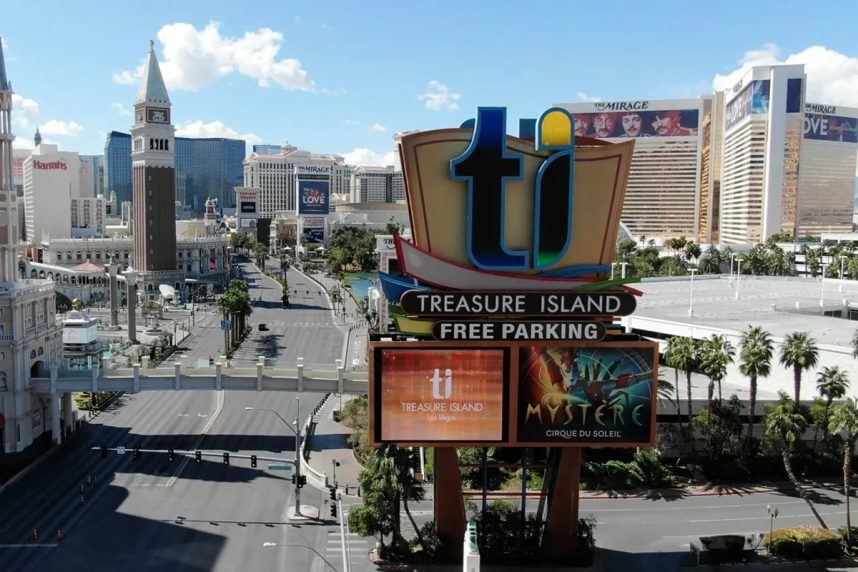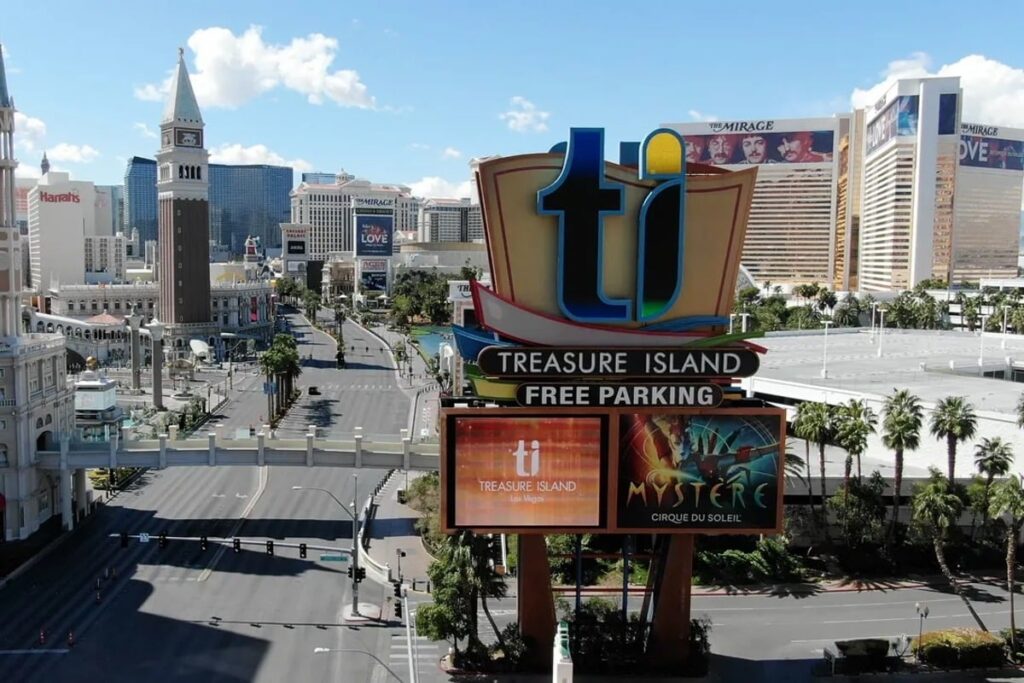Posted on: April 1, 2024, 03:56h.
Last updated on: April 1, 2024, 03:56h.
Treasure Island Las Vegas is heading to trial in its quest to receive compensation from its primary property insurer for business losses incurred during the COVID-19 pandemic.

A federal judge in Nevada’s District Court ordered on March 29 that the lawsuit brought by Treasure Island, LLC, the parent operating company of the Strip casino resort, against Affiliated FM Insurance Company has merit to proceed. Attorneys for Treasure Island, which is owned by billionaire Phil Ruffin, filed the lawsuit in July 2020 against AFM after the insurer refused to pay out on property insurance claims.
Plaintiff has presented sufficient evidence from which a jury could find that it did in fact suffer physical loss and damage,” U.S. District Judge James Mahan wrote.
AFM’s legal team had asked Mahan for a summary judgment and for the case to be dismissed. Mahan agreed that the insurance giant did not act in bad faith or violate the Nevada Unfair Claims Practices Act, as also alleged by Treasure Island, but said the casino’s claims that it suffered “physical loss or damage” is warranted for further consideration.
In Nevada, all brick-and-mortar casinos were closed on then-Gov. Steve Sisolak’s (D) orders from March 17, 2020, through June 4, 2020.
Rare Case Moving Forward
Numerous casinos, both commercial and tribal, sued their property insurers in the pandemic’s aftermath for not paying out on claims. Federal and state courts have almost unanimously sided with the insurance companies because the casino buildings did not suffer direct physical harm from the airborne virus.
Mahan, however, ruled that Treasure Island’s legal filing isn’t so clear cut. That primarily stems from the casino’s property insurance including a communicable disease provision that covers costs for “the reasonable and necessary costs incurred … for the cleanup, removal, and disposal of … communicable disease from the insured property.”
Treasure Island sought coverage for the communicable disease component on March 19, 2020. The claim was denied.
AFM’s response says the claim was rejected because “coverage is not available absent physical loss or damage.” Treasure Island filed a lawsuit in July.
Mahan agreed with Treasure Island that the air inside the property is insured property and that the insured property caused physical harm to both employees and guests by infecting them with COVID-19. Mahan also wrote that viruses and disease-causing agents might not be excluded from the coverage terms.
“The policy provides an exclusion for ‘contamination, and any cost due to contamination, including the inability to use or occupy the property or any cost of making the property safe or suitable for use or occupancy,’” the judge explained.
Exclusions Dismissed
In his order, Mahan said AFM’s contamination and loss of use exclusions are ill-worded and unspecific in the agreement.
Although the policy mentions the word ‘virus’ in the contamination exclusion, that fact alone does not show that the contamination exclusion applies in this context. There is a ‘communicable disease’ provision in the policy that covers the physical removal of a disease. Plaintiff reasonably argues that ‘it would be meaningless (and impossible) to cover the physical removal of a disease but exclude the virus that causes it,’” Mahan continued.
Calling the terms “contradictory,” Mahan cited a 2011 case against Liberty Mutual that concluded that “vague or ambiguous insurance provisions” be “construed narrowly against the insurer.”
With Mahan’s order, Treasure Island’s case against AFM Global will head to a jury trial later this year, pending appeal by the insurance firm.




